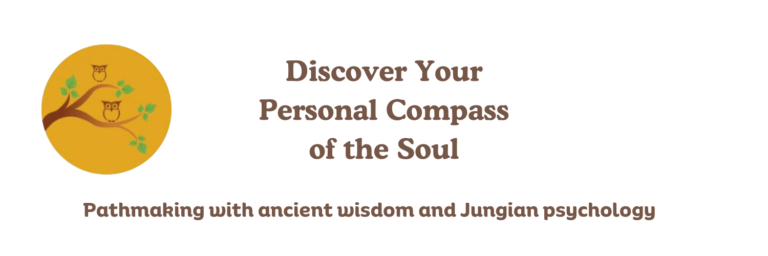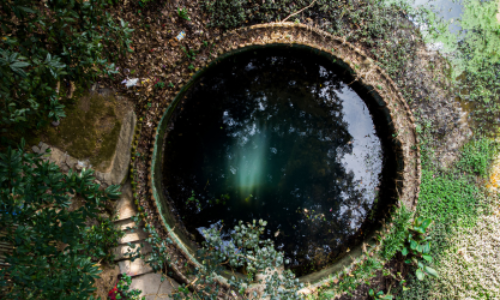Knowledge of Jungian personality typology can help an astrologer sharpen their predictions and better understand themeselves and their clients.
If you practice astrology, and like blending in elements of depth psychology, typology is a great addition to your practice.
Jungian typology is what eventually led me to astrology. I have found that the two work well together and there is no need to abandon one for the other. They are a potent combination.
Typology gives you more information than the chart does about the person’s energy flow and their eight energetic pathways (cognitive functions) as well as their shadow tendencies. It provides a more complete picture of the person.
When you only have an hour to meet with someone, and are likely only ever meeting once with the person, or perhaps once per year, astrology plus typology helps the person come away with practical information they can use.
Here are the 7 things astrologers should know about typology:
1. Typology is an archetypal language, just like astrology – In the Jungian world, individuation (wholeness) is an archetypal process; its patterns are universal but the specifics are unique to each person, which is where type comes into play, just like astrology does.
There are four main functions, which Marion Woodman describes as: “Sensation is what is. Feeling is its value. Thinking is what it means. And intuition is its possibilities.” When adding the attitude of intuition or extraversion to those four functions you get the eight total functions. When comparing these functions to astrology, Jung correlated sensation to earth, fire with intuition, air with thinking, and water with feeling.
Jung also viewed type as a mandela, just like a natal chart is a mandela. Jungian analyst John Beebe, M.D., who considers himself a “geographer of typology,” added another circle of eight archetypes to represent the positions in the psyche where the types can appear. These eight roles are: Hero, Parent, Child, Anima/Animus, Opposing Personality, Critical Parent (Witch/Senex), Trickster, Demon. I have posts about these which are listed on this page. These eight facets of the personality are similar in some ways to the 12 houses in astrology and certain astrological configurations.
Beebe also adds a “spine” and “arms” to type. The arms are the middle two functions of the personality, which we use when interacting with others. This could be compared, among other things, to the Moon and the 7th house in astrology. The spine consists of our superior hero function and inferior anima/animus function, which are focused on our identity. Comparables in astrology include the rising and Sun signs and difficult aspects. Beebe says holding both the inferior and superior functions in balance gives us integrity.
Now for a word about Myers-Briggs vs. Jungian typology: Myers-Briggs is quantatative and more helpful for the first half of life. It helps us strengthen our ego and adapt to the outer world. By contrast, Jungian typology is qualatative and more focused on individuation, which tends to be a project for the second half of life. It also is invaluable for dream work and shadow work, especially when using Beebe’s model. Beebe says that type development saves us from falling into our shadow.
2. The personality type gives clues as to how the person has responded to their natal karma. The chart itself can’t tell you that. For example, a natal Moon in the 12th house of Capricorn will mean a certain range of things archetypally. But how has the person responded to that placement throughout their life? Typology will provide some answers and help guide the questions we ask the client.
Astrologers often focus so much on the chart and pressure themsleves to try to unpack all the nuances before even meeting the person. Because an astrology consultation is usually a one-off occurrence, versus several sessions like in psychotherapy, it helps to have the language of type to get a baseline of the person. Astrologer and Jungian analyst Liz Greene emphasizes how the person always comes before the chart. We need to interact with them and experience something of their identify before providing delineations.
Liz Greene: “Even if we wish to restrict our interpretations to external events, nevertheless we still need to recognise that there is a human being who will respond to – and perhaps has even attracted or caused – the external event, and whose responses will be highly personal. The perception of an event is a highly subjective business. The event and the person are not separable. As Jung once said, a person’s life is characteristic of the person.”
3. Type is not a label and is not exact – A common criticism of type is that it isn’t possible for people to fit just one of 16 types – it is just another way of pigeonholing people into a label. The same is said about Sun sign astrology, that it isn’t possible for all people with a particular Sun sign to fit those characteristics. Those criticism are all valid. But just like any astrologer will tell you that astrology is far more nuanced than just Sun signs, so, too, with typology.
Some people will be closer to the bell curve than others but it’s best to think of tendencies rather than type. Rather than saying, “I am an ISFJ,” it is better to say, “I am someone with ISFJ tendencies.” That also moves us away from using type as a label.
As Jung said, “Every individual is an exception to the rule. Hence one can never give a description of a type, no matter how complete, that would apply to more than one individual, despite the fact that in some ways it aptly characterizes thousands of others. Conformity is one side of man, uniqueness is the other.”
4. Personality types change throughout the lifetime – Type is like an astrological transit. Just like certain parts of the chart are dormant and active at any given time, so, too with type.
Type is about energy. The changing psychic energetic flow is a snapshot of where we are at any give time. Factors such as environment, conditioning from others, the various roles we play in life, and more can bring out and potentially strengthen one or more of your weaker functions.
Jungian analyst Thomas Patrick Lavin said that a person who struggles with addiction sometimes lives entirely in their inferior function and it takes a year of sobriety for that to change. On the more positive end of the spectrum, he also said that 25% of people have their second and third functions reversed, because their environment during their first half of life pushed them to combine these things then instead of during the second half of life, and they tend to be creative people.
Regarding those two middle functions, Marie-Louise von Franz, Jung’s closest associate, said: “One must not forget that the assimilation of these functions is such a difficult task that people generally spend a very long time at it. Sometimes people actually become a certain type, which was not their original type, for eight or ten years.” For example, during the second half of life, an INFJ might find herself with more time to study topics of interest and develop the weaker introverted thinking function to such an extent that she might come across as an INTP type to some.
This doesn’t mean, of course, that, say, an INTJ can potentially morph into an ESFP or ENTP in their later years. What it can mean is that, if they have worked at becoming more conscious of those qualities within them, they can start reconciling those opposites. They will become an even more unique kind of INTJ.
This is similar to how astrological transits are harbingers of change and new themes but they do not override the natal promise in the birth chart.
5. Type cannot be discovered through an online test or from a natal chart – Both of these can give clues, but ultimately the person has to discover it through ongoing self-reflection, perhaps working with an analyst, and/or talking with others about how they perceive you. An astrologer with knowledge of typology can help a person with this self-discovery by looking at their chart with them.
As Liz Greene says: “One cannot evolve a formula to extract the psychological type of the individual from the horoscope; one must first experience it in the individual, and this knowledge should then be applied to the chart.”
It’s important to note that, for example, a stellium of planet in Taurus doesn’t automatically mean the person is a sensation type. This post of mine about questions to ask yourself to help you discover your personality type might be helpful.
6. Knowing your own type will help you become better at working with clients as an astrologer – Barbara Hannah, in her biography about Jung, said Jung was able to speak the language of every personality type, which was a great help when working with his patients.
If your delineations don’t make sense to the client, and assuming your astrological knowledge is sound, it is likely because the person is a different type from you. As an astrologer, if, for example, you have ENTP tendencies, and your client is likely INFJ, you’ll know to speak in a more focused way, keep the consultation structured, and not ask them multiple choice type questions.
When you know your own type, you will be able to develop the ability to pivot in your first four functions so that you don’t come on too strong with the client. You will especially learn to rely on your parent function.
7. Typology can sharpen your astrological predictions and provide better practical takeaways –
Although knowing what themes might be ahead can help us face them with equanimity, knowledge of that transit alone isn’t enough to foster that. Liz Greene writes about how some astrologers prefer to focus on the meaning of the transit, but it’s important to also have a sense of the person’s emotional patterns and empathy for difficulties the client may be going through:
For example, let’s say you have a client with ISFJ personality tendences. Let’s also say there is a lengthy Mars retrograde transit coming up in their rising sign. When offering the range of archetypal themes they may experience, one thing to point out to them is that they might find themselves being able to use their sha critical parent introverted feeling shadow function more consciously, such as by speaking up for themselves and being more assertive, and how that might end up bringing positive change. This differs from what you would say to someone who is an ENTJ and has a fire rising sign such as Aries.
Liz Greene warns us against focusing solely about the meaning of a transit or being too concretely predictive: “Talking about the ultimate meaning…may need to be combined with a genuine empathy for what the person is going through right now. This may be particularly important for those people who are rooted in feeling rather than thinking…” This is yet another way knowledge of type can help astrologers when talking about predictions.
In conclusion, typology provides a practical and interesting way to engage with Jungian psychology and deepen your astrology consultations. Also, type doesn’t require knowing someone’s birth time, like astrology does, so when interacting with clients and people in our everyday lives it gives us a way to understand their energy flow and speak their language.
_________
Astrology Consultations | Monthly Depth Books Newsletter | Contact
References:
Energies and Patterns in Psychological Type by John Beebe, M.D.
John Beebe’s interview with Joyce Meng
Marion Woodman and Robert Johnson in Conversation: Jungian Psychology Through the Eyes of Two Jungian Masters
Psychological Types by C.G. Jung
Psychological Types presentation by Thomas Patrick Lavin for the CG Jung Institute of Chicago
Lectures on Jung’s Typology by Marie-Louise von Franz and James Hillman
Relating by Liz Greene
Jung: His Life and Work by Barbara Hannah










